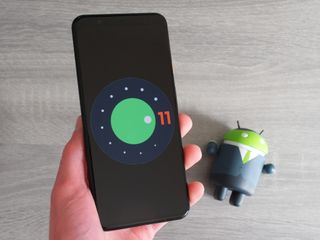Google wins decade-long battle against Oracle over Java on Android

What you need to know
- The Supreme Court has ruled in favor of Google in its long-time battle against Oracle.
- Oracle sued Google for using its Java code in earlier versions of Android.
- Google has maintained that it was "fair use" and that APIs aren't subject to standard copyright protections.
Google has just secured a major win for Android. The company has been locked in a decade-long battle with Oracle over its use of Java code in earlier Android versions. Oracle sued Google after purchasing Sun Microsystems, which developed the Java platform. Oracle claimed that Google stole its property when it copied code based on Java APIs to develop Android and attract developers, seeking almost $9 billion in damages.
Meanwhile, Google has maintained that the use of nearly 12,000 Java code lines was fair use and that software APIs aren't subject to the standard copyright protection. Google's SVP of Global Affairs, Kent Walker, told Axios that Oracle's suit "would introduce new friction for interoperability," describing how APIs allow the software to be used to connect to other programs and devices. As our Jerry Hildenbrand stated last year when he explained the confusing Oracle v. Google battle, Oracle's lawsuit would more or less hinder innovation and restrict programs from working with each other.
After much back and forth in lower courts battles, the Supreme Court finally took Google's side with its ruling on Monday:
Google's copying of the Java SE API, which included only those lines of code that were needed to allow programmers to put their accrued talents to work in a new and transformative program, was a fair use of that material as a matter of law.
The Supreme court found that Google's own "reimplementation" of the code that was used in the best Android phones was necessary to allow programmers to work within different computing environments while keeping them interoperable. The ruling reads that "as part of an interface, the copied lines are inherently bound together with uncopyrightable ideas....and the creation of new creative expression." Furthermore, the code in question only accounted for about 0.4 of the API at issue and thus "should be viewed as a small part of the considerably greater whole."
Dorian Daley, Oracle's executive vice president and general counsel, expressed his disappointment in a statement posted to the company's website:
They stole Java and spent a decade litigating as only a monopolist can. This behavior is exactly why regulatory authorities around the world and in the United States are examining Google's business practices.
Google, meanwhile, is celebrating the win, particularly for what it means for the future of computing:
Today's Supreme Court decision in Google v. Oracle is a big win for innovation, interoperability & computing. Thanks to the country's leading innovators, software engineers & copyright scholars for their support. https://t.co/mSoKY8tM8pToday's Supreme Court decision in Google v. Oracle is a big win for innovation, interoperability & computing. Thanks to the country's leading innovators, software engineers & copyright scholars for their support. https://t.co/mSoKY8tM8p— Kent Walker (@Kent_Walker) April 5, 2021April 5, 2021
Be an expert in 5 minutes
Get the latest news from Android Central, your trusted companion in the world of Android

Derrek is a long-time Nokia and LG fanboy who loves astronomy, videography, and sci-fi movies. When he's not working, he's most likely working out or smoldering at the camera.
